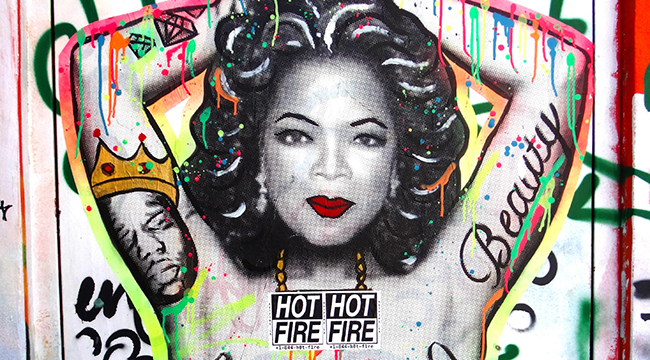Self-help is facing a crisis. Hopefully. Maybe.
In the last 10 years, we’ve seen the #MeToo movement, in which women are standing up against sexual harassment and assault.
We’ve seen students speaking out against our resistance to sensible gun restrictions in the face of a national mass shooting epidemic.
We’ve seen people of color, through movements like Black Lives Matter, speaking out (again) against racial injustice.
We’ve seen political figures such as Bernie Sanders and Elizabeth Warren gain wide appeal by calling into question an economic and political system that stacks the deck against the middle and lower classes.
It seems to me that we’ve become more aware of and more willing to talk about structural imbalances and systems of oppression that, well, perpetuate imbalance and oppression. In contrast, talk of “self-care” sounds kind of absurd. Our structural deficiencies ultimately dwarf our individual efforts at self-improvement. It strikes me that this kind of awareness could render self-help moot.
Writer Steve Blum attended an Oprah “Vision 2020” event. His article in Los Angeles Magazine addresses this issue, contrasting Oprah’s occasional political rhetoric (like in her Golden Globe’s speech that had people speculating she might run for president) with what she’s actually selling in her self-help empire. Blum describes her schtick as “a very ’90s strain of self-help that is more concerned with banishing internalized doubts than addressing things like structural inequalities.” He goes on: “What good is a ‘wellness intention,’ which her workbook encourages us to set, when so many people can’t afford to see a doctor?”
It’s a really good question, and it raises many more.
What good is our personal vision, when the greed of the wealthy continues to pollute our planet beyond repair? What good is my routine for success, when so many of us have to work multiple jobs just to be able to afford the basics of living? What good are all those positive vibes, when governments continue to push indigenous people off their land, or separate families who are trying to escape violence and poverty?
Blum doesn’t offer much of an explanation, but notes that the Oprah rhetoric is nevertheless nullifying and comforting—a hint at why it remains so popular.
I get it. These structures feel so solid sometimes that it’s tempting to just give up. And when we still need to grasp at some sense of agency, self-help is a natural handhold. Maybe I’ll never have housing or job security, but damn it, I can make myself a green smoothie every morning!
When I feel crippling anxiety over climate change and what the future will be for my children, let alone myself, my daily intention holds a promise of action. It’s like white bread. We know it is at least nutritionally empty, if not outright bad for us, and yet we eat it because it’s somehow comforting.
But given my concerns with self-help from my personal experience, and my deep frustration with Oprah specifically, I wonder: When might we collectively start calling bullsh*t on all this self-help stuff (Goop Lab, anyone?) that is ultimately an empty promise in the face of undeniable reality? Will we, ever? Because, let’s face it: my mindset is important, but it’s not going to close the wealth gap so I can buy a house.
And don’t get me wrong. There’s still good stuff to find in there among the ultimately empty self-help fluff. We need—maybe more than ever—to cultivate our self-worth and empower ourselves to be people of action, with belief in our potential to make change. When we do face a greater number of triggers for anxiety and despair, there is real utility in tools that help keep us grounded.
If anything, the potential for the self-help industry to be something truly powerful—and not just parasitic—is greater today. But if the industry wants to remain relevant, it needs to cut the crap and adopt the “real talk” it often tells us to train on ourselves. We need more true empowerment rather than just tone-deaf, feel-good fluff.












Read 0 comments and reply